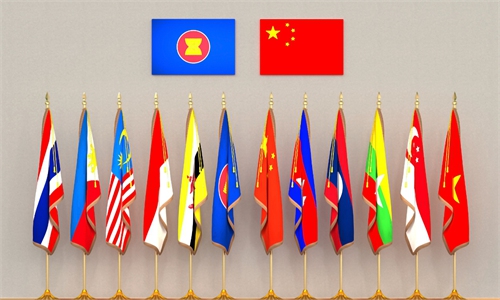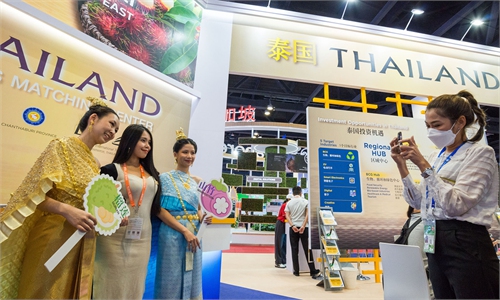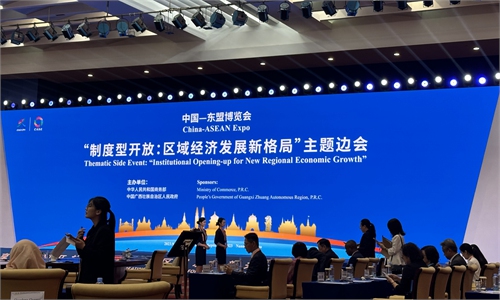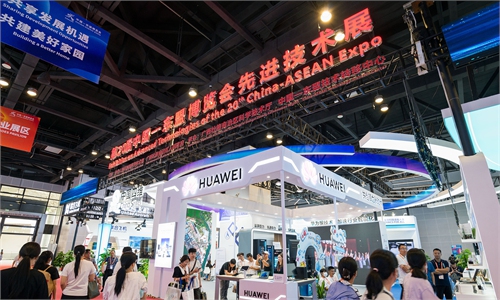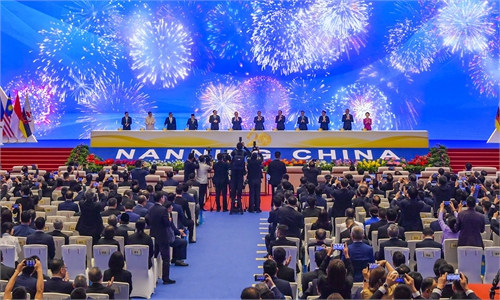China-ASEAN Expo closes with ‘record high’ deals, promoting regional economy on fast track of recovery
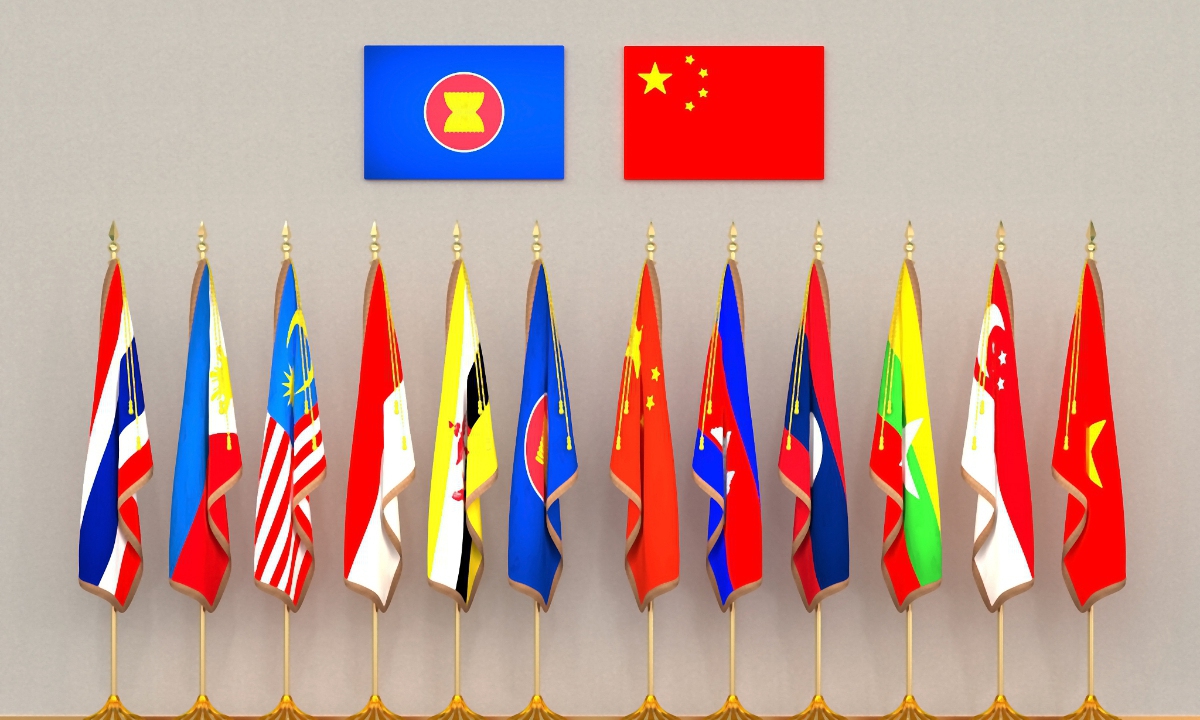
China ASEAN Photo:VCG
A record number of investment deals were signed during the four-day 20th China-ASEAN Expo held in Nanning, capital of South China's Guangxi Zhuang Autonomous Region, organizers announced at the closing ceremony on Tuesday.
The result was fueled by substantial trade complementarity, a long-lasting bond of trust and eagerness for more engagement among companies and officials between the two sides, observers said, noting that the expo is set to inject momentum and confidence into the regional and world economy amid downward pressure.
The expo saw deals signed for 470 projects with a combined investment of 487.3 billion yuan ($66.81 billion), an increase of 18 percent year-on-year. Over 65 percent of that investment came from deals in the manufacturing sector, Wei Zhaohui, secretary-general of the China-ASEAN Expo Secretariat, said at the closing ceremony on Tuesday.
"The number of projects and total investment hit record highs," Wei said.
Trade transactions were "active and impressive," characterized by the presence of numerous large orders and a high volume of green and low-carbon goods, Wei said.
Chinese smart equipment, green appliances, ecofriendly home building materials, and lighting technology products were favored by ASEAN buyers, while organic food, tropical fruit and health products from ASEAN countries were highly sought after by Chinese buyers.
The signing of a purchase order by Brunei for 30 Chinese aircraft worth over $2 billion marked the largest trade deal in the history of the expo.
More than 100 companies introduced new products, including flagship smartphones, drones, underwater data center products and new-energy vehicles.
The 20th China-ASEAN Expo opened on Saturday, with nearly 2,000 enterprises in attendance. Participation was up 18.2 percent from last year's expo. The participation and scale also bounced back to the pre-pandemic level.
The China-ASEAN Expo was proposed during the 7th China-ASEAN "10+1" Leaders' Meeting in 2003 and has been held annually since 2004. As of 2023, it has been organized 20 times.
The history of the China-ASEAN Expo is closely tied to milestones in China-ASEAN economic cooperation, Tang Zhimin, dean of the International School of the Panyapiwat Institute of Management and director of the China-ASEAN Research Center, told the Global Times on the sidelines of the forum on Tuesday.
Tang said the hosting of the China-ASEAN Expo by China has provided ASEAN members with a valuable platform to showcase their goods and services, connect with Chinese consumers and explore partnership opportunities.
Trade cooperation between China and the 10 members of ASEAN - Brunei, Cambodia, Indonesia, Laos, Malaysia, Myanmar, the Philippines, Singapore, Thailand and Vietnam - has developed steadily over the years.
China was the bloc's largest trade partner for 14 consecutive years as of 2022, and both sides have remained each other's top trade partner for three years in a row as of 2022, data from China's General Administration of Customs showed.
China's trade with ASEAN grew by 1.6 percent year-on-year to 4.11 trillion yuan in the first eight months of 2023, accounting for 15.2 percent of the country's total trade.
"Many of our products, mainly food, sold out before the closure of the expo," Tan Sri Dato' Low Kian Chuan, President of The Associated Chinese Chambers of Commerce and Industry of Malaysia (ACCCIM), told the Global Times on Tuesday.
"Next year, we hope to be better prepared and bring more companies in other areas, to seize a slice of the 'big cake'," Low said.
Low noted that as the world is facing an economic slowdown, all countries are facing challenges. For example, Malaysia has a small economy and is export-oriented, so if the global economy slows down, it will definitely be affected.
"But we all [ASEAN members] are counting on China," Low said, believing that China can tide over the temporary difficulties through technology advancement and innovation.
Officials and observers said that with the implementation of the RCEP and accelerated negotiations on the Version 3.0 China-ASEAN Free Trade Area, the two are set to go further and deeper.
Compared with the China-ASEAN Free Trade Area's achievements in trade in goods, the significance of the RCEP to China and ASEAN lies in the services industry and investment access. In addition, the RCEP includes issues such as intellectual property, e-commerce, competition and government procurement, Tang said.
China-ASEAN Free Trade Area 3.0 negotiations, which started in February, will also focus on cooperation in areas of common concern including the digital economy, green economy, and supply chain connectivity.
The two will complement one another and enrich the connotation and extension of the construction of a China-ASEAN community with a shared future, the expert added.

